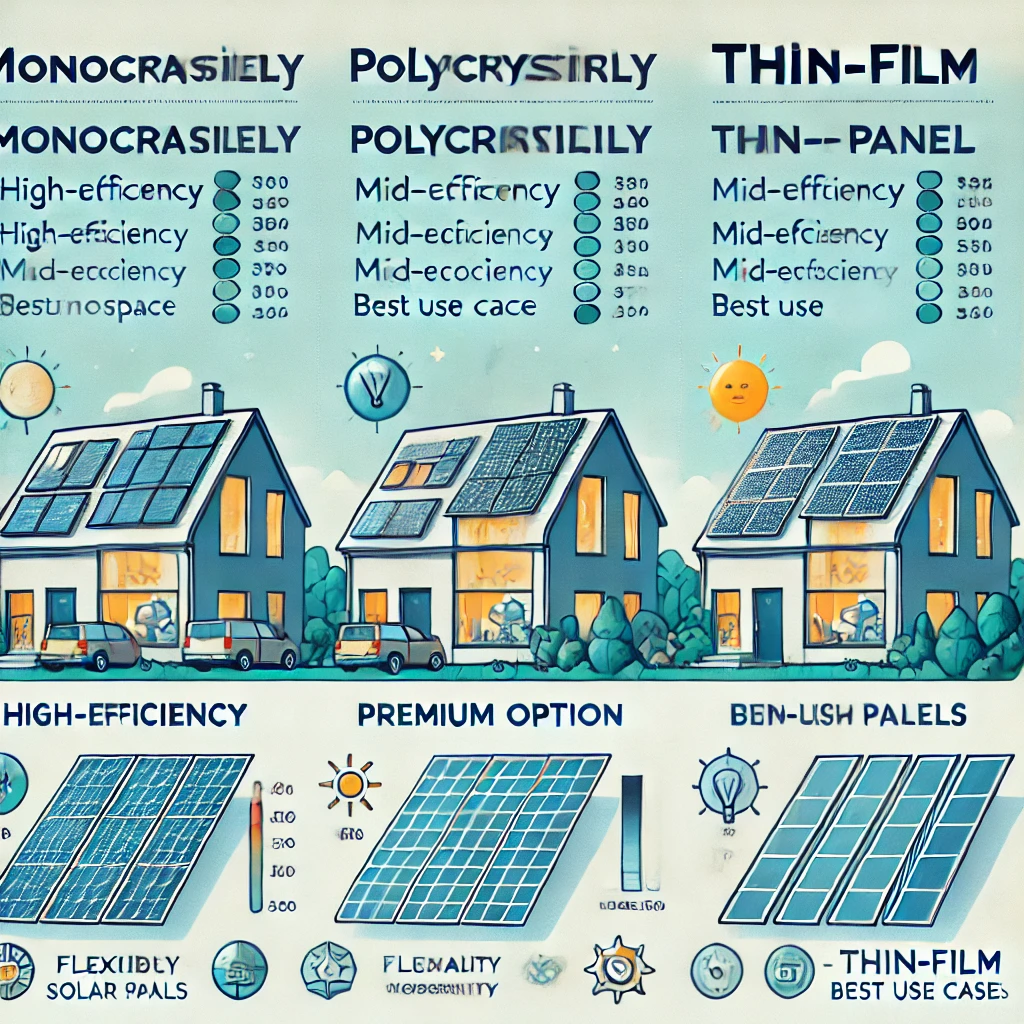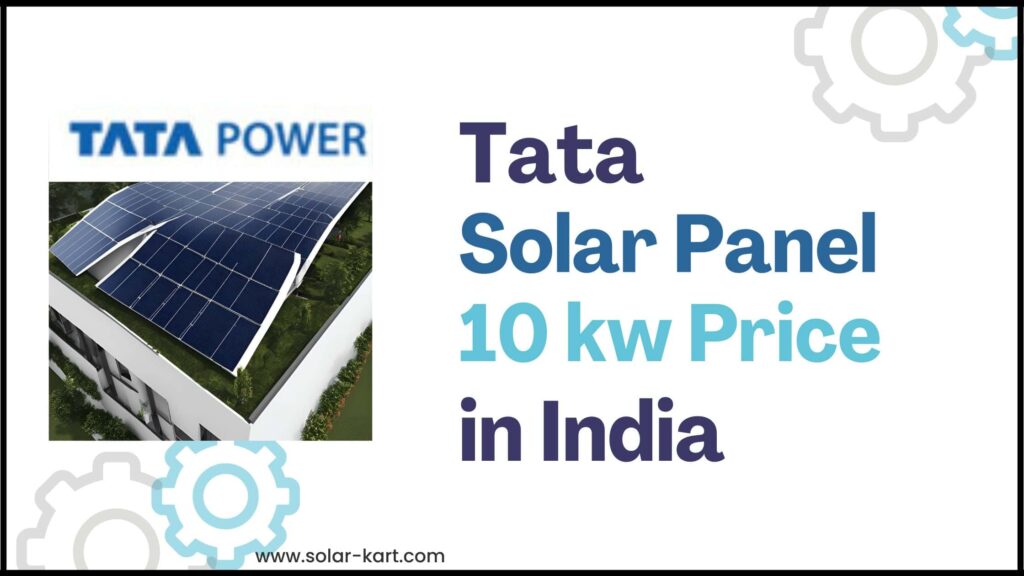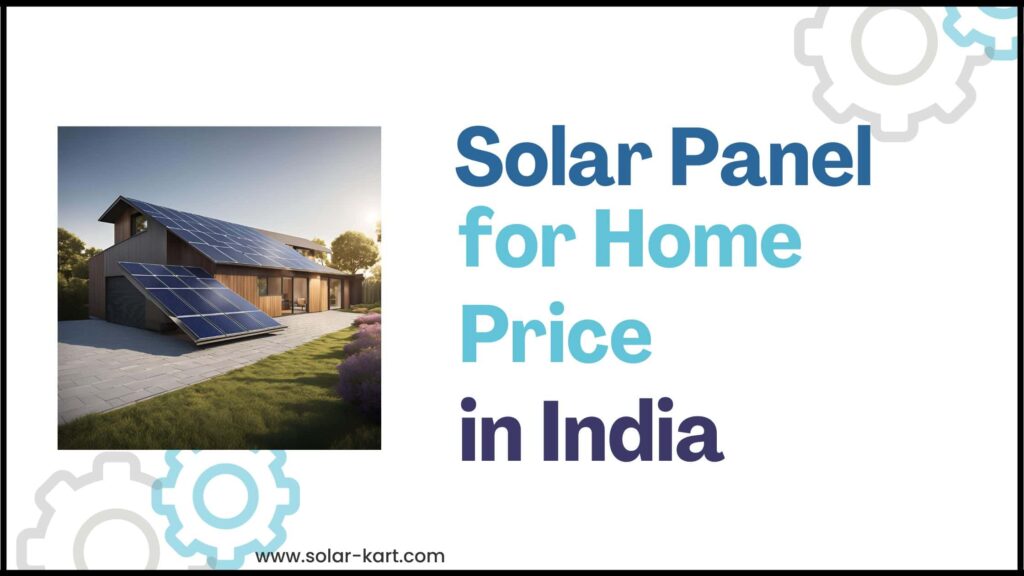When it comes to powering your home with solar energy, the big question is always, “Which solar panel is best for home use?” With so many options on the market, it can feel overwhelming.
But don’t worry – I’m here to guide you through it. In this post, I’ll help you understand what factors to consider, the types of solar panels available, and which ones might work best for your specific needs.
By the end, you’ll have a clearer idea of which solar panel is best for home use.
Which Solar Panel is Best for Home?
Ok let me discus each and every points why and which solar panel is best for your home. Read each points very carefully and you will get the right information.
Why Choose Solar Power?
Before diving into the types of solar panels, let’s quickly cover why solar power is a great choice for your home. First, it’s environmentally friendly – reducing your carbon footprint is always a plus. Second, solar panels help you save on electricity bills over time. Third, they increase your home’s value.
Types of Solar Panels for Homes
Now that we’ve covered the why, let’s move on to the what. Solar panels come in three main types, and each has its advantages.
1. Monocrystalline Solar Panels
Monocrystalline panels are made from a single crystal structure, which makes them the most efficient option. They have the highest power output and take up less space on your roof.
- Efficiency: Up to 22%
- Lifespan: 25+ years
- Cost: Higher than other types
Monocrystalline panels are often the best choice if you have limited roof space and want maximum efficiency. They’re also visually appealing with their sleek, black look.
2. Polycrystalline Solar Panels
These panels are made from multiple silicon crystals. They are less efficient than monocrystalline panels but more affordable.
- Efficiency: Around 15-17%
- Lifespan: 20-25 years
- Cost: More affordable
If you have more roof space and are looking to keep costs down, polycrystalline panels can be a great option.
3. Thin-Film Solar Panels
Thin-film panels are flexible and lightweight. They’re less efficient but can be used in places where traditional panels won’t fit.
- Efficiency: Around 10-12%
- Lifespan: 10-20 years
- Cost: Moderate
Thin-film panels are best for unique applications, such as covering large areas or portable uses.

Price Chart
Here’s a chart that features some popular Indian solar panel companies, comparing them based on the following categories: Efficiency, Cost per kW, Warranty, and Best for.
| Company | Solar Panel Type | Efficiency | Cost per kW (₹) | Warranty (Years) | Best for |
|---|---|---|---|---|---|
| Tata Power Solar | Monocrystalline, Polycrystalline | 18-19% | ₹35,000 – ₹45,000 | 25 | High efficiency, long-term value |
| Vikram Solar | Monocrystalline, Polycrystalline | 17-19% | ₹30,000 – ₹42,000 | 25 | Balanced performance and cost |
| Waaree Energies | Monocrystalline, Polycrystalline | 16-18% | ₹32,000 – ₹40,000 | 25 | Affordable for residential use |
| Adani Solar | Monocrystalline, Polycrystalline | 16-17% | ₹30,000 – ₹38,000 | 25 | Budget-friendly, reliable panels |
| RenewSys Solar | Monocrystalline, Polycrystalline, Thin-Film | 15-17% | ₹28,000 – ₹36,000 | 25 | Low-cost option for large setups |
| Emmvee Solar | Monocrystalline, Polycrystalline | 17-18% | ₹32,000 – ₹41,000 | 20 | Good balance of cost and quality |
| Loom Solar | Monocrystalline, Bifacial | 18-20% | ₹35,000 – ₹50,000 | 25 | High-efficiency, premium panels |
| Jakson Solar | Monocrystalline, Polycrystalline | 17-18% | ₹30,000 – ₹40,000 | 25 | Reliable, mid-range panels |
| Usha Solar | Polycrystalline | 15-16% | ₹28,000 – ₹35,000 | 20 | Affordable for small homes |
| Sukam Solar | Monocrystalline, Polycrystalline, Thin-Film | 16-17% | ₹30,000 – ₹38,000 | 20 | Best for rural and remote areas |
Panel Types Explained:
- Monocrystalline Panels: Known for high efficiency and sleek design. Ideal for homeowners with limited roof space or seeking maximum efficiency.
- Polycrystalline Panels: More affordable but slightly less efficient than monocrystalline. Good for larger rooftops or budget-conscious buyers.
- Thin-Film Panels: Flexible and lightweight, ideal for low-light areas or unique installations like portable solar setups.
This chart now includes all three types of solar panels, providing a full picture of what each Indian company offers.
Key Factors in Choosing Solar Panels for Your Home
Now that you know the types of panels, you might wonder, “How do I know which solar panel is best for my home?” There are several factors to consider.
1. Roof Space
How much space do you have on your roof? If space is limited, monocrystalline panels, with their higher efficiency, may be your best option.
2. Budget
Solar panels can vary greatly in price. Monocrystalline panels cost more upfront but are more efficient. Polycrystalline and thin-film options are more budget-friendly but may require more space.
3. Energy Needs
How much electricity does your home use? A larger home or one with high energy consumption might benefit from the higher efficiency of monocrystalline panels.
4. Climate
If you live in a hot, sunny area, you’ll benefit from the performance of polycrystalline or monocrystalline panels. If your region gets less sunlight, thin-film panels can be a better choice due to their performance in low-light conditions.
Comparison of Solar Panel Types
Here’s a quick comparison chart to make it easier for you to choose the best solar panel for your home:
| Panel Type | Efficiency | Cost | Lifespan | Best For |
|---|---|---|---|---|
| Monocrystalline | 20-22% | High | 25+ years | Limited roof space, high efficiency |
| Polycrystalline | 15-17% | Moderate | 20-25 years | Budget-friendly, larger roof space |
| Thin-Film | 10-12% | Moderate | 10-20 years | Unique applications, low-light areas |
How Much Does It Cost to Install Solar Panels?
One of the biggest concerns for homeowners is the cost of installation. Here’s a quick breakdown of what you might expect:
- Monocrystalline Panels: These are the most expensive, but you get the most efficiency. Expect to pay around ₹40,000 to ₹60,000 per kW.
- Polycrystalline Panels: These are more affordable, costing between ₹30,000 and ₹45,000 per kW.
- Thin-Film Panels: Thin-film panels are typically cheaper to install, ranging from ₹20,000 to ₹35,000 per kW.
Is Solar Worth It for Your Home?
The upfront cost of solar panels might seem high, but the long-term savings on electricity bills can be substantial. Depending on your location and energy usage, you could break even on your solar investment in as little as 5-7 years. Plus, many governments offer incentives or subsidies to help reduce the installation costs.
How Much Power Do You Need?
To figure out how many panels you need, you’ll want to consider your home’s energy consumption. Most homes need between 5 kW and 10 kW of solar power to cover their electricity needs. Here’s a rough guide:
| Home Size | Energy Needs (kW) | Number of Panels (Monocrystalline) | Number of Panels (Polycrystalline) |
|---|---|---|---|
| Small (1-2 bedrooms) | 3-5 kW | 12-20 panels | 18-25 panels |
| Medium (3-4 bedrooms) | 5-7 kW | 20-28 panels | 25-35 panels |
| Large (5+ bedrooms) | 7-10 kW | 28-40 panels | 35-50 panels |
The number of panels you need will depend on your roof space, the efficiency of the panels you choose, and your overall energy usage.
Conclusion: Which Solar Panel is Best for Home?
So, which solar panel is best for home use? It depends on your specific needs. If you want the highest efficiency and don’t mind paying a bit more upfront, monocrystalline solar panels are a great choice. If you’re looking for something more budget-friendly and have plenty of roof space, polycrystalline solar panels could be the perfect fit. For unique applications or flexible uses, thin-film solar panels offer versatility.
Remember, the best solar panel for your home isn’t just about the type – it’s about your energy needs, budget, and location. With this guide, I hope you feel more confident in choosing the right solar panel for your home.
If you still have questions or need a specific recommendation, feel free to ask! I’m here to help you make the best decision for your home’s solar power needs.




Pingback: The Ultimate Guide to Solar Panel Insurance: Protecting Your Investment - Solar-kart.com
Pingback: Solar Street Lights for Home: A Smart and Sustainable Choice - Solar-kart.com